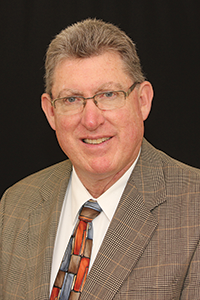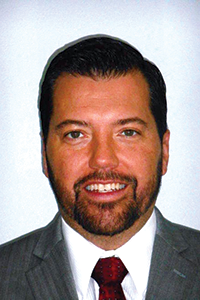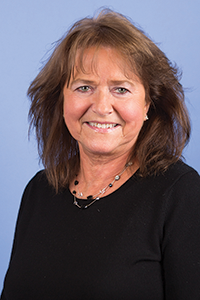Money matters
Virginia CFOs offer their wish lists for Congress
They are the numbers people, often out of the spotlight but always in the game.
Chief financial officers are the heartbeat of their organizations. Having the right one at the right time can make all the difference in a company’s growth.
To recognize the contributions of chief financial officers, Virginia Business has sponsored the Virginia CFO Awards since 2006. This year, the magazine received
50 nominations for awards in five categories: small and large nonprofit organizations, small and large private companies, and publicly traded companies.
Nearly half of this year’s nominees, 21, were women.
The judges for this year’s competition were the five winners from the 2016 Virginia CFO Awards. They were:
- René Chaze, CPA, of Edelman Financial Services in Fairfax.
- Mike D. Griffin of Tucker Griffin Barnes PC in Charlottesville.
- Julie Hovermale, CPA, of the Better Housing Coalition in Richmond.
- Dave Keltner, interim group CFO, Wolseley Group Services in Newport News.
- Jeff Reed of Community Housing Partners in Christiansburg.
The five winners are profiled in the following pages. In addition, Virginia Business talked to other nominees from four regions throughout the commonwealth about the issues they face on the job. The CFOs also reveal what they believe Congress could do to make the job easier.
The ‘vision guy’
Here’s what Jake Schrum, president of Emory & Henry College in Southwest Virginia, says about his CFO: “Rick Gaumer is more than a numbers guy, when it comes to the management of finances at Emory & Henry; he is a ‘vision guy.’
“He is a CFO with a dream for how educational mission and numbers can work together to create the best possible results for a college,” Schrum said in nominating Gaumer for the Virginia CFO Awards.

Working with regional banks and in a special arrangement with the U.S. Department of Agriculture available only to rural areas, Gaumer developed a debt refinancing plan that shaved about $1 million off the college’s annual debt service.
In addition, he was able to secure an additional $20 million to finance construction of eight apartment-style residence halls and an additional student center.
The college expects the new residence halls to improve retention and recruitment at the college, which has about 1,000 undergraduate students and 150 graduate students. “We’ll have a 40-year amortization with a relatively low interest rate,” Gaumer says.
The CFO, who also has worked in private industry, says he respects the value of a liberal-arts education offered by a small college. That’s one of the reasons he took the job at Emory & Henry.
But Gaumer says he’s also looking for results from investments the college makes. That’s why he spent $50,000 on the creation of a marching band, which is helping the college attract students from throughout the region.
Gaumer also supported the acquisition of a highly successful equestrian program from Virginia Intermont College in nearby Bristol. (Virginia Intermont closed in 2014 because of financial problems.)
That program likewise helped broaden Emory & Henry’s brand and boost its recruiting efforts, Gaumer and Schrum say.
If Congress could grant Gaumer one wish, it would be to increase the Pell Grant program so that more low-income students can be helped.
In Southwest Virginia, where the decline of the coal industry and other economic problems have hurt already struggling families, Gaumer says low-income students need all the help they can get — to gain an education and be job-ready when they graduate.
Dealing with downturn
For Dawn Wright-Lawson, CFO of Henry County Public Schools in economically hard-hit Southern Virginia, finding funds in tight budgets for school improvements is an ongoing challenge.
Jared Cotton, Henry County’s school superintendent, praises his CFO for producing annual savings of about $1 million for the school system, which serves 17,000 students.
“This achievement has allowed for infrastructure improvements to the division’s aging schools that would not have otherwise been possible,” Cotton said in his nomination of Wright-Lawson, a CPA.
She was the controller of a furniture components manufacturer in the area before it went out of business. That has been the fate of many furniture and textile manufacturers in the region.
Southern Virginia’s economy already was struggling when Wright-Lawson came to work for the school system in 2008. Then the Great Recession made things worse.
In 2010, Henry County had an unemployment rate of 14.7 percent. By April, it had dropped to 5.2 percent but that rate is still above the state average of 3.8 percent.
When Wright-Lawson started her job, she says, the school system had a $2.5 million capital improvements budget. But that soon evaporated amid overall budget cuts, and ongoing costs haven’t allowed the capital improvements budget to be rebuilt.
“Our [overall] budget was reduced $2 million in the first year and $8 million in the next fiscal year,” she says.
Some savings have been achieved by modifying programs that don’t align with the school system’s strategic plans and the attrition of teachers at the top end of the pay scale.
Those savings are used to address unanticipated problems such as a boiler going bad or a leaky roof.
The CFO’s most important request for congressional action focuses on school mandates in the schools.
“If they’re going to have these mandates, they need to provide enough money to cover them,” she says.
Prepared for hard times

Lanzer, a CPA, landed a position at a startup in Prince George County, Service Center Metals, which is now a major aluminum extrusion manufacturer. The company’s founders credit him with helping it grow into an enterprise with $133 million in annual revenue and nearly 200 employees.
But the path to this point hasn’t been easy. The company initially had difficulty getting financing. Also, demand fell by more than 40 percent during the Great Recession of 2007-09, forcing the company to lay off some employees.
The challenges Lanzer has faced helped shape his philosophy as a CFO.
“My view of the world is that you should always treat the times as if they are difficult times,” he says. That approach prepares him for downturns, so they’re not great shocks, Lanzer explains.
Lanzer’s personal experience with hard times made him an ardent supporter of the Central Virginia Food Bank. “I remember my own roots,” he says. “I was living with my mother, and we were very poor. I know what it’s like to be without.”
Lanzer says the most important action Congress could take would be to repeal or change the Affordable Care Act.
“We used to be able to differentiate our health benefits by employee group. This was done to attract and retain skilled employees. After the ACA, we had to reduce the benefits offered to those groups,” he says. “It had a direct impact on our business, and we started losing our maintenance employees. Similarly, we were challenged to attract new ones. We now pay a higher wage to compensate for the loss in benefits.”
Herding lawyers
A financial career can involve a series of jobs in different types of workplaces.

Her first job in the Washington area involved working for an environmental services firm as a controller on a government contract. Then someone in her neighborhood told her husband that an Alexandria firm needed some accounting help.
Today, Lenz is chief financial officer for the Redmon, Peyton & Braswell law firm in Alexandria. For more than 20 years, she has “herded cats,” says managing partner Gant Redmon. That’s his description of handling the finances of the firm’s 18 attorneys.
“Sometimes the attorneys think they know more about accounting than I do,” Lenz says with a laugh. “They are a bunch of good attorneys, but I tell them ‘I know accounting. What you’re doing is not right. Trust me.’ ”
Under the firm’s financial system, each attorney represents a separate profit center. Keeping up with their trial hours, billings, 401(k)s and various fees — standard rate, retainers, referrals, individual client agreements and the rest — can be a challenge.
“It’s very detailed. Things can get out of control quickly,” Lenz says.
If keeping up with the numbers wasn’t enough, Redmon says, Lenz also functions as the firm’s office manager, overseeing everything from the office kitchen to flowers in the reception room to decorations for the holidays.
Those duties are not included in her job description, but Lenz believes that helping to keep everybody happy is important.
“You can’t be grumpy,” she says, especially when it comes to discussions about someone’s paycheck.
Lenz says she doesn’t have any special requests of Congress — well, maybe one.
“They can send somebody over to take my job for two weeks, maybe a month,” she jokes. “I think that would be great.”
2017 Virginia CFO Award winner profiles by Joan Tupponce
- LARGE NONPROFIT ORGANIZATIONS: Sean Barden, Mary Washington Healthcare, Fredericksburg
- SMALL NONPROFIT ORGANIZATIONS: Sylvia Haines, Hampton Roads Chamber, Norfolk
- LARGE PRIVATE COMPANIES: James Crowder, HHHunt Corp., Richmond
- SMALL PRIVATE COMPANIES: Valerie Wilkinson, CPA, The ESG Companies, Virginia Beach
- PUBLIC COMPANIES: Wayne Rehberger, Engility Holdings Inc., Chantilly
















